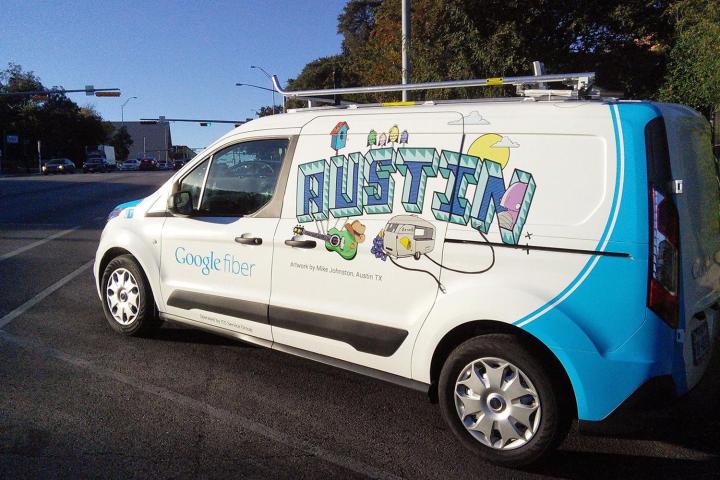
The announcement comes on the heels of news that Craig Barrett, chief executive of Access, the subsidiary of Google parent company Alphabet that oversees management of Fiber, is stepping down from his roll to serve as an adviser. He won’t be immediately replaced.
“We have refined our plan going forward to achieve these objectives,” Barrett wrote in a blog post. “It entails us making changes to focus our business and product strategy. Importantly, the plan enhances our focus on new technology and deployment methods to make superfast Internet more abundant than it is today.”
The list of affected cities includes Chicago, Illinois; Jacksonville, Florida; Los Angeles, California; Dallas, Texas; Louisville, Kentucky; Nashville, Tennessee; Phoenix, Arizona; Portland, Oregon; San Diego, California; San Jose, California; and Tampa, Florida.
In addition to the “pause” in Fiber’s rollout and Barrett’s departure, Google said it would lay off employees in “certain areas of […] supporting operations” — primarily in the metropolitan areas affected by today’s announcement. Ars Technica, citing a “source familiar with the company’s plans,” reports nine percent of employees within Alphabet’s Access division will have their roles eliminated, though it’s unclear how many of those employees occupy the Fiber division.
Despite the doom and gloom, it’s not quite the end of Fiber. Alphabet’s Access division has committed to launching Fiber in four cities over the next few months, and has “no plans” to cease service in areas where it offers Fiber connectivity.
Google Fiber is available in Atlanta, Georgia; Austin, Texas; Charlotte, North Carolina; Kansas City, Missouri; Kansas City, Kansas; Nashville, Tennessee; Provo, Utah; Salt Lake City, Utah, and the Triangle region in North Carolina. And it’s scheduled to launch in Irvine, California; San Antonio, Texas; Louisville, Kentucky, and Huntsville, Alabama.
Today’s announcement would appear to substantiate a report published in The Information earlier this year which claimed that Larry Page, Alphabet’s CEO, ordered the Google Fiber team reduced to half its size, or 500 people.
Google’s Fiber deployment has faced regulatory roadblocks recently. AT&T and Charter filed suit against the city of Louisville in order to stop an ordinance that provides Google Fiber easier access to local utility poles. And AT&T independently sued Nashville over a similar rule earlier this year.
But Google’s pivot from Fiber deployment is at least partially attributable to its purchase of Webpass, a wireless company that uses high frequency, millimeter wave technology to deliver internet speeds between 100Mbps to a gigabit per second. “Our strategy going forward will be a hybrid approach with wireless playing an integral part,” Google Fiber president Dennis Fish said of the acquisition. “Going forward, Webpass will continue to grow and scale its business with point-to-point wireless technology, including expanding into new cities.”
At an Alphabet shareholder’s meeting earlier this year, Chairman Eric Schmidt unveiled plans to test wireless gigabit internet service that wouldn’t require “[digging] up your garden.”
Related:
The new strategy isn’t without its limitations. Webpass’s radio transceivers require line-of-sight in order to transmit optimally, and service can fluctuate depending on atmospheric interference, network congestion, and the number of subscribers using the connection at any given time.

